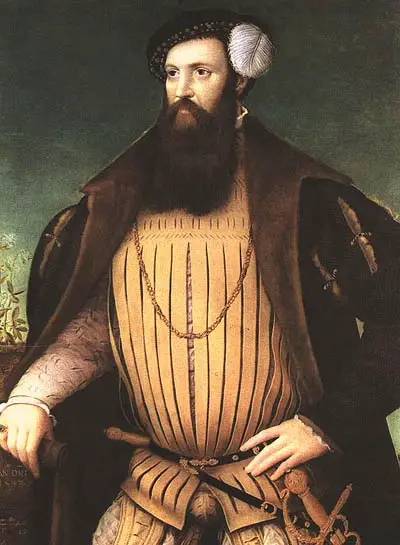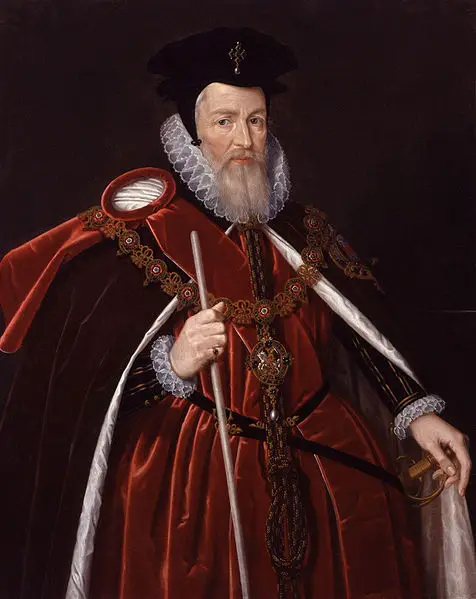
John Russell, 1st Earl of Bedford
In The ancient history and description of the city of Exeter (1765), John Hooker writes of that day:
"Next Morning (Sunday) his Lordship, intending to direct his Course towards the City [Exeter], commanded the Trumpet to sound, and every Man to make ready to march forwards, and about Nine o'clock came to Clyst; where the army divided into three parts, appointing three several ways by which to enter the Town; for in so many places the rebels had fortified it, making great Rampires, which after some Bickering, were taken; and Sir W. Francis, of Somersetshire, and his division, was named as the first that should try to get into the town, where the Commons were by this time assembled together, to try their strength. Now as the King's army was marching in good Order into the Town, one of the chief captains of these rebels, viz. Sir Thomas Pomeroie, Knt. hid himself in a Furse-Brake; and seeing the army was past him, having a Trumpeter and Drummer with him, commanded the Trumpeter to sound, and the Drummer to beat a March. Lord Russell and his company, on hearing of this and supposing verily that there had been an ambush behind, to have entrapped and inclosed 'em, retired back with all the haste they could. Which those in the town perceiving, immediately followed them, until they came to the Waggons, which stood in the High Way, and which now by the retreat of the Army, instead of being in its rear, were nearest to the Town. These, being laden with Ammunition, Provisions, and Treasure, they took and brought back into the Town, out of which they took what they thought fit, destroyed the rest, and employed the Ordnance, Shot, etc. against Ld. Russell and his forces.
The army having recovered the hill did pause there for a while; and finding themselves to be deceived, marched back again towards the town; but before they came thither, his Lordship was inform'd that every house therein was fortified, and full of men; and that it was not possible to pass that way without great danger unless the town was set on fire. Upon this, order was given to set fire thereto, notwithstanding it belonged to his Lordship. Sir William Francis, who was at the head of the foremost division, leaving the road which he first march'd, took now one that was both deep and narrow; when the enemy, being upon the banks on each side of the road, with stones so beat him, that they struck his headpiece fast to his head, of which he died.
The army having, however, got into the town, set fire to every house they could come at. But the rebels, who now assembled themselves in the middle of it, stood upon their defence; when a very fierce, cruel, and bloody fight began, in which some were slain by the sword, some burnt in the houses, some shifting for themselves, were taken prisoners, and many, thinking to escape over the water, were drowned; so that there fell that day about a thousand of these obstinate and foolish men."
The Devonian and Cornish rebels were defeated by Lord Russell's troops, and around 900 prisoners were massacred later that day to stop them escaping and rejoining the enemy.
Further reading
- Hooker, John (1765) The Ancient History and Description of the City of Exeter - This can be read at https://books.google.co.uk/books?id=hMcpAAAAYAAJ&hl=en. See p. 93-94.
- The Prayer Book Rebellion at Devon Perspectives.
- The Prayer Book Rebellion, HistoryExtra article at http://www.historyextra.com/feature/prayer-book-rebellion



Leave a Reply